Banking from your phone?
Download our app
Welcome Back
You can access your accounts here.

Banking from your phone?
Scan the code to download our app.

featured
2023-12-27
Mortgage
published
Unlocking the Doors to Homeownership: A Comprehensive Exploration of FHA Loans

-
Embarking on the path to homeownership requires navigating the intricate world of mortgages, which is easier said than done. In this blog, we will walk-through FHA loans, explaining what they are, how to qualify, and breaking down the differences between FHA and conventional mortgages.
What’s an FHA Loan and How to Qualify?
FHA loans, formally known as Federal Housing Administration loans, stand as a government-backed pillar that supports the dreams of prospective homeowners. Tailored for first-time buyers and people with lower credit scores, FHA home loans offer a viable pathway to homeownership, characterized by a minimal down payment requirement—typically 3.5%. To qualify for an FHA loan, several factors come into play, including your credit score, employment history, and debt-to-income ratio.
What are the differences between FHA vs. Conventional Mortgages?
As we dive deeper into the mortgage landscape, there are a few primary differences between FHA and conventional mortgages. FHA loans have lower entry barriers. In contrast, conventional mortgages are more suitable for individuals with higher credit scores and larger down payment capabilities. FHA home loans were designed to cater to those with lower credit scores and in-need of financial resources.
Understanding the nuances of FHA and conventional mortgages means understanding their distinct insurance structures. FHA loans require both upfront and annual premiums, which contributes to their accessibility but also impacts the overall cost. In contrast, conventional mortgages often involve private mortgage insurance (PMI), typically required when the down payment is less than 20%.
What are FHA Loan requirements?
Securing an FHA loan involves meeting specific criteria beyond credit scores and down payments. For example, a steady employment history is crucial because it demonstrates financial stability. Sufficient income is another key factor, ensuring that borrowers can comfortably meet their mortgage obligations.
Compliance with FHA property standards is a unique aspect of FHA loan requirements. The property to be financed must meet certain criteria outlined by the FHA, ensuring a baseline level of safety and habitability. This includes considerations, such as structural soundness and meeting local building codes.
FHA Loans at Armed Forces Bank
Whether you're a first-time homebuyer or someone exploring mortgage options, this comprehensive guide is your compass in the complex realm of FHA loans. By shedding light on the intricacies, we empower you to make well-informed decisions, ensuring your journey to homeownership is not only fulfilling but also financially astute.
With this knowledge, we hope that you feel prepared to navigate the mortgage landscape and make choices that fit with your homeownership goals. If you’d like to learn more about FHA home loans, connect with an Armed Forces Bank loan officer.
Member FDIC
Subject to credit approval. Fees apply. Eligibility requirements apply to the FHA loan program.